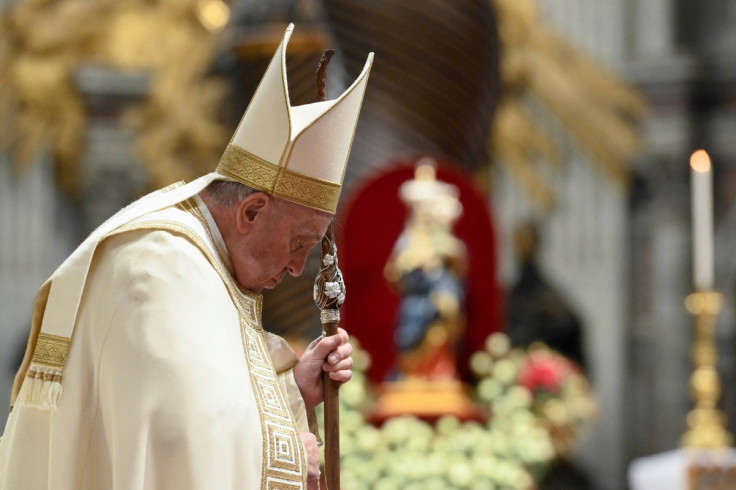As Pope Francis visits Congo, LGBT+ activists cheer for perceived ally
LGBT+ activists in Democratic Republic of Congo are celebrating the arrival of Pope Francis, whose recent push for the decriminalisation of same-sex relations has given them hope of greater acceptance of their community across Africa.

LGBT+ activists in Democratic Republic of Congo are celebrating the arrival of Pope Francis, whose recent push for the decriminalisation of same-sex relations has given them hope of greater acceptance of their community across Africa.
Same-sex relations are illegal or taboo in many socially conservative African countries, including in South Sudan which the pope will visit after Congo. Some influential African religious leaders preach against it as a corrupting force and LGBT+ people often face threats and exclusion.
The Catholic Church teaches that while same-sex attraction is not a sin, same sex acts are. However, activists like Scaly Kep'na in Kinshasa have taken heart from the pope speaking out against the criminalisation of same-sex relations in a recent interview.
"It is a beautiful message, which advocates inclusion and marks an evolution of the Church too," said Kep'na, who set up youth organisation Jeunialissime to fight discrimination.
In past years, Pope Francis has said he could not judge gay people, that they were "children of God" and the Catholic Church should apologise to gay people for the way they have been treated.
Africa accounts for half of the world's 64 countries that criminalise same-sex relations, according to the most recent data from the International Lesbian, Gay, Bisexual, Trans and Intersex Association World (ILGA World).
"These declarations are a step forward for the future of Africa, the future of our country and especially the future of religious discourse in the world," Kep'na told Reuters as the pope's plane touched down in Kinshasa on Tuesday for the first papal visit since 1985.
Even in African countries like Congo that do not explicitly outlaw same-sex activity, LGBT+ people often still face legal discrimination under public decency laws and other broader legislation.
While it is unclear if the pope will speak on the topic during his visit to Congo and South Sudan that runs to Feb 5, his message will have been heard by the continent's many Catholic faithful, said Julia Mukuala, 38, Congolese activist and member of the Pan-Africa ILGA Board.
"We think it will change the perception of all the religious people in our countries who think that when you are homosexual, you are to be slaughtered, to be dehumanised, you are devils," she said by phone.
On Tuesday, her organisation put up a large banner in Kinshasa on behalf of the Congolese LGBT+ community, decorated with a rainbow flag and a welcoming message to Pope Francis.
'SIGN OF MERCY'
Not everyone sees the pope as an LGBT+ ally.
"The Holy Father is far far from being a supporter of homosexuality," said Father Alain Difima, head of Kinshasa's Catholic abbots, who interpreted the pope's comments seeking decriminalisation as a sign of his mercy.
The pope "simply wanted to show that a person who practices homosexuality is still capable of remaining in society," he said by phone. "It's his way of giving a chance to a homosexual person whom the world sees as a criminal."
Other Catholic clergy take a sterner view. Father Samuel Abe, Administrator of the Catholic Archdiocese in South Sudan's capital Juba, said he hoped LGBT+ rights would not come up during the pope's visit.
In "our South Sudanese culture we don't even practice or do this kind of thing," Abe said by phone. "We don't need to be debating what doesn't affect us."
In Kinshasa on Wednesday as thousands queued for the pope's open air mass, many declined to answer when asked what they thought about his stance on decriminalisation.
For Bienvenue Lukokisa, who campaigns for the rights of military wives and children, the issue comes down to personal beliefs and culture. "People should do what they want, but for us we say we are rooted in and protectors ... of African values."
Copyright Thomson Reuters. All rights reserved.




















